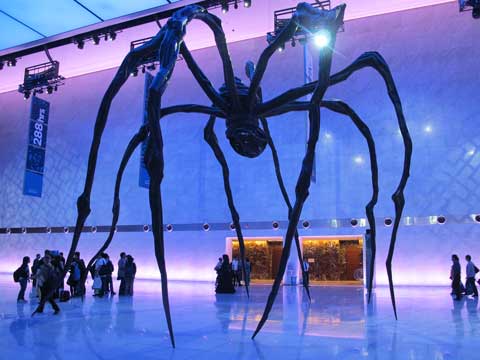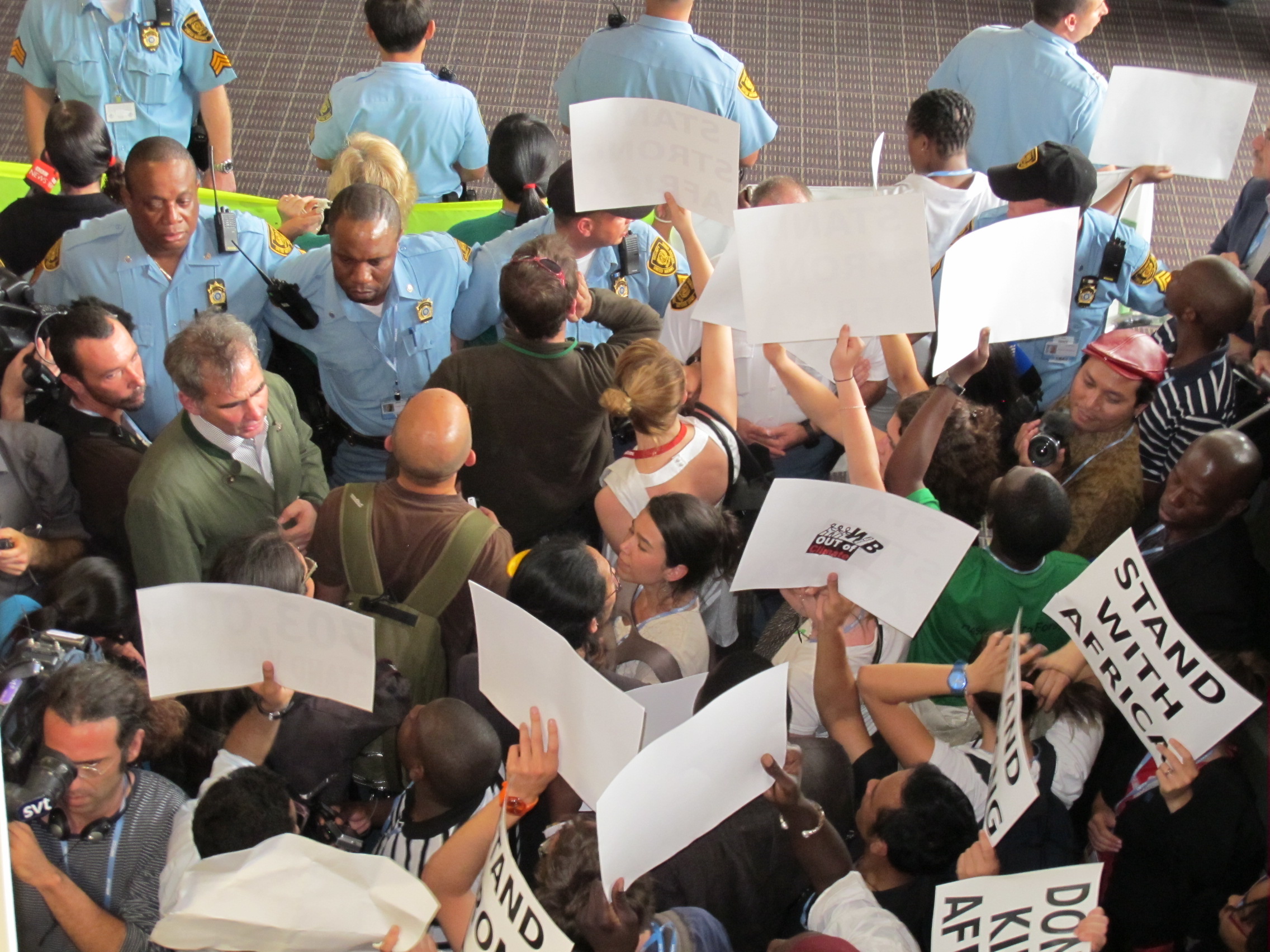
Shelob/Maman lurks over Doha delegates.
Every time I walk into a press conference it seems there’s more ‘cheery’ news. Yesterday it was UNEP releasing a science report on melting permafrost. Scary stuff. So scary that The Age in Melbourne gave it most of the front page and even some on the back page. (Meanwhile the NZ media was all about Hobbits).
According to the report, if the permafrost keeps melting like it has been, the gases it releases will make up 39% of emissions in 2100 (a combination of release of trapped methane and C02 from decomposing matter).
Then today it was the World Meteorological Organisation’s State of the Climate provisional report. 2012 was no exception to the trend of rising temperatures. “Global warming isn’t a future threat: it’s happening now,” intoned the official, pointing to this year’s Arctic melt as evidence.
These organisations save this stuff up for the climate talks, but sometimes one has to wonder why. I heard a UN official telling a newbie to the process that none of this would have any effect on the delegates at the talks. “They’re in a bubble – they’re totally immune to this stuff,” he said. And he’s right.
Some of these officials have been coming to the climate talks for more than 20 years and they don’t see anything beyond their negotiating tables. What might have an impact would be if they get home and their kids, having seen the permafrost or WMO stories, start giving them hell about it. I hope they do.
Continue reading “Doha notes: Random thoughts from the Middle East”

 Flying into Doha yesterday for the next round of international climate negotiations, landing in what seems to be a pile of white sand in the middle of nowhere, with high rise buildings sticking out of it. Is this where we’re going to stop climate change?
Flying into Doha yesterday for the next round of international climate negotiations, landing in what seems to be a pile of white sand in the middle of nowhere, with high rise buildings sticking out of it. Is this where we’re going to stop climate change? My inbox in the last month has filled with emails about denier articles in leading New Zealand newspapers. It’s been a veritable crank central across the country. They include the
My inbox in the last month has filled with emails about denier articles in leading New Zealand newspapers. It’s been a veritable crank central across the country. They include the 

You must be logged in to post a comment.